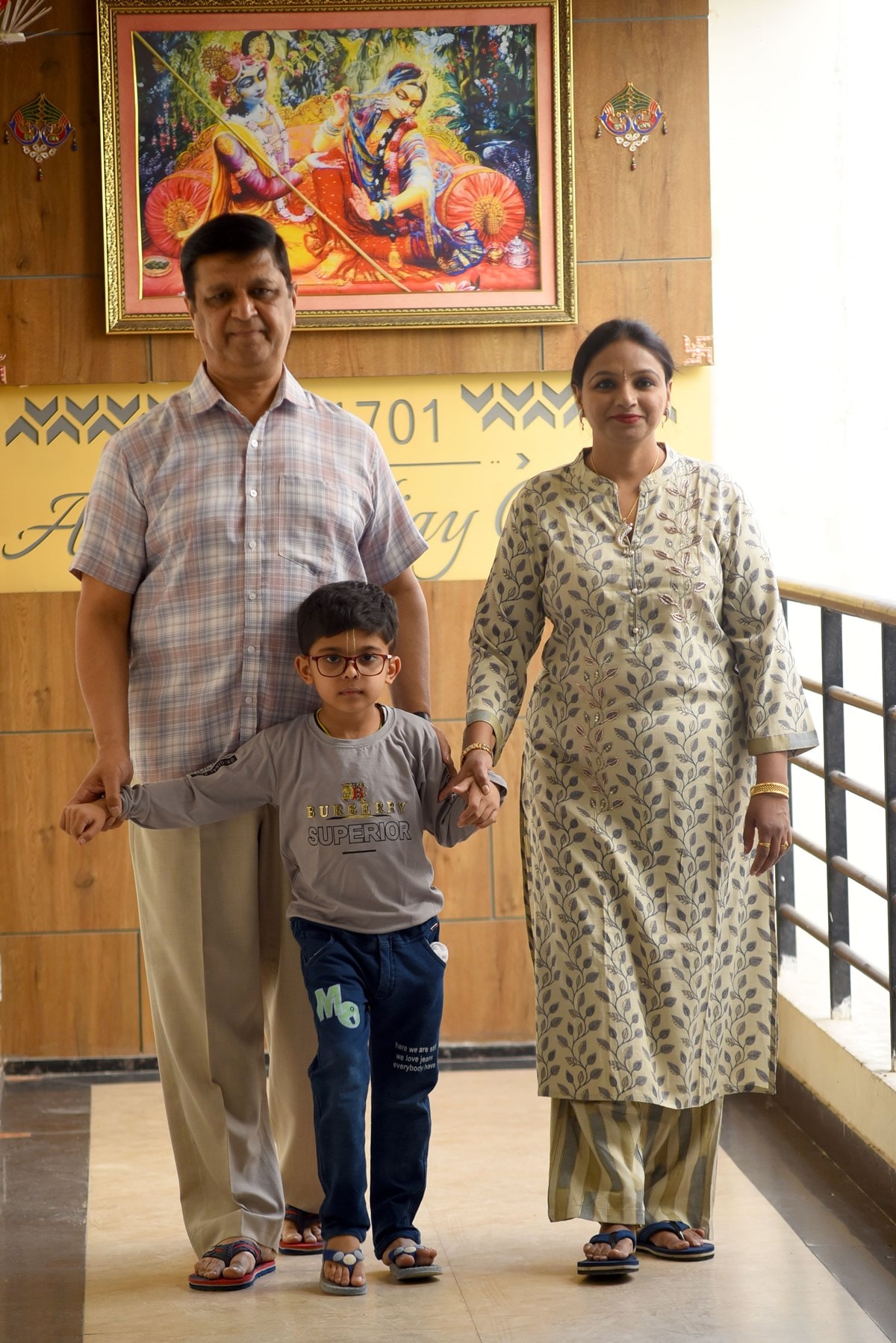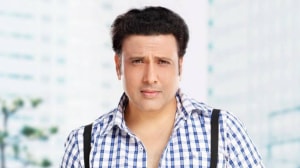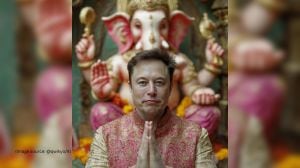A chance encounter can mean many things. For Aarti Gupta, who gave up the idea of In-Vitro Fertilisation (IVF) after three successive failures and took to drawing Bal Gopal (baby Krishna) at 40, it was divine intervention. For her husband Ajay, who moved to Muscat as its new airport manager so that Aarti could forget her stressful memories in Chennai, it was about completing the circle of life. For that encounter got them their child through the method they dreaded the most — IVF.
“We longed to have a child of our own but after several failed attempts, naturally and through IVF, I gave up,” recalls Aarti. All of her maternal instincts she poured into her Bal Gopal series of paintings, which adorn the walls of her home. Motherhood seemed a closed chapter till a late night call from an irate airline passenger to Ajay changed the direction of their lives.

The agitated caller was Dr Sunita Tandulwadkar, a well-known IVF specialist from Pune. Her flight to India had been delayed, which meant that she could not be in time to retrieve eggs from her patient, who had been prepped and given injections almost 35 hours before. Her patient would lose her chance and she would lose a family’s faith. For Ajay, pacifying passengers was part of his duty. Not wanting another couple to lose hope, he arranged a seat for Dr Tandulwadkar on an Air India flight. The doctor wanted to return the favour and they formed a bond that resulted in Aarti agreeing to a fourth IVF procedure and giving birth to her son. “In fact, we celebrated Yashodhan’s sixth birthday in Pune,” says Ajay.
Story continues below this ad
Aarti and Ajay married in 2011 and for the first couple of years, they consulted gynaecologists to understand their chances of having a biological child. Aarti had a blockage in her fallopian tube that led to infertility. Doctors recommended IVF that would involve placing a fertilised egg inside her womb. And since she was healthy and had no medical ailments, she seemed like an ideal candidate. The couple were recommended an IVF consultant in Chennai but all three cycles of embryo implantation failed.
 Ajay Gupta his wife Arati Gupta and Child Yashodhan at his residence in Jaipur (Express photo by Rohit Jain Paras)
Ajay Gupta his wife Arati Gupta and Child Yashodhan at his residence in Jaipur (Express photo by Rohit Jain Paras)
Recalling Aarti’s condition when she first met her, Dr Tandulwadkar says, “She was past her peak reproductive years and fertility levels start declining faster once the woman is in her mid-30s. There is a fixed number of eggs in the ovaries and they too decrease as one gets older.” Perhaps it was the quality of Aarti’s embryos or the stress and anxiety of “what if” she had internalised that worked against the treatment in those years. Ajay and Aarti started consulting Dr Tandulwadkar and it took six visits from Muscat in 2016 for the IVF pregnancy to work. Aarti delivered a healthy boy in February 2017.
Cut to present time. At Dr Tandulwadkar’s Solo Clinic in Pune, a team of experts are busy counselling a couple on IVF. “The entire process is explained in detail to all our patients. We emphasise that despite all medical advancements, there are chances of failure. IVF is not cent per cent successful and people should know that in equal measure. Aarti was 40 and I told her that she should not expect miracles but go with the flow,” says she. Besides, IVF is the safest medical procedure with the Assisted Reproductive Technology (ART) (Regulation) Rules , 2022, coming into effect. The functioning of ART clinics and banks is being closely monitored. “Criteria are laid down on who requires IVF and what kind of standardisation is needed at the ART lab. This boosts the confidence of couples wanting to be parents,” says Dr Tandulwadkar.
Ajay, who is 60 and has now retired and settled in Jaipur, says they were mentally prepared to take a leap of faith and stop if the procedure failed. And the couple gave it their all, booking hotels for the long haul till the embryo was successfully implanted in Aarti’s womb. It was not easy. Since her ovarian reserve was low, Aarti had to be given injections daily for at least eight to ten days so that the little eggs she had could be stimulated. This is standard protocol in all women. Once these eggs look healthy and agile, they are retrieved to make embryos. Ultrasound examination is conducted and if all parameters look good, no special blood test is carried out. Follicular monitoring is conducted to check if the eggs are mature and ready for fertilisation. A special injection is then given 35 hours in advance so that the eggs can be released and retrieved. “The embryologist has to keep the egg in the incubator for further maturity after which the sperm is brought in for fertilisation. However, this may not necessarily translate into an embryo as faulty eggs do not grow,” Dr Tandulwadkar explains. This involves repeated participation from the couple and the process may take between two and six weeks. Stress can impair the quality of the egg as can other factors like age and obesity. “The younger the couple, the better the result,” says the IVF expert.
Story continues below this ad
The difficult part may be over but once the embryo is ready to be transplanted, doctors have to monitor its growth for 12 weeks. Aarti’s implant was successful and she was expected to birth twins. However, midway one of her embryos stopped growing. But since the other one looked robust, Dr Tandulwadkar assured her of a healthy pregnancy. Finally, Aarti became a mother at a hospital in Muscat.
Spouses need to do a lot of hand-holding during their IVF journey. And Ajay was with Aarti every step of the way, learning to administer injections and keeping a close watch on her tendency to develop gestational diabetes and high blood pressure, common for most women in the third trimester. They still back each other up. At 46, Aarti has no trouble keeping up with her energetic son in his growing up years. “We keep ourselves fit, walk a lot and are stress-free,” says Ajay, waiting for his son to return from school.



 Ajay Gupta his wife Arati Gupta and Child Yashodhan at his residence in Jaipur (Express photo by Rohit Jain Paras)
Ajay Gupta his wife Arati Gupta and Child Yashodhan at his residence in Jaipur (Express photo by Rohit Jain Paras)





























